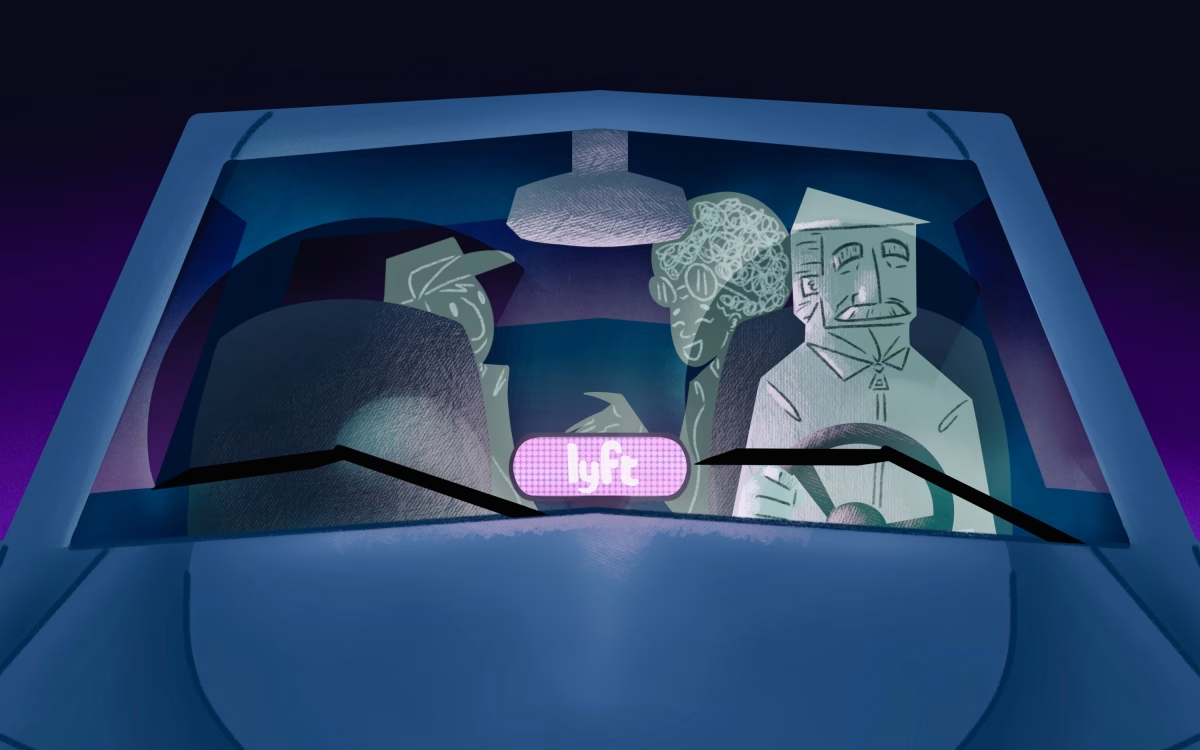Lyft became the second rideshare service to roll out a rider verification program in cities across America in an attempt to improve driver safety. In Chicago, the process began Sept. 5, 2024. Rider verification, part of an effort to reduce the use of false names, is designed to help drivers ensure that the person they are driving is who they say they are.
“The Rider Verification program is a direct response to what our driver community has been asking for,” Audrey Liu, Lyft’s executive vice president of rider experiences and community safety, told The DePaulia. “(This is) a way to enhance their peace of mind and ensure they can trust who they are picking up.”
Uber, a competing rideshare company, launched a similar rider verification program last April.
Lyft’s verification process includes cross-checking user provided information, such as their name and phone number, with a trusted, third-party database, according to Lyft’s press office.
If the information does not match the database due to inconsistencies like a false name, riders are asked to correct the information and input their legal name, according to Liu. If more information is required, riders are then prompted to upload a photo of government-issued ID, such as a driver’s license, passport or state ID card.
“This pilot marks the latest step in our work to make Lyft the safest way to get around,” according to Lyft officials.
The rider verification pilot program comes after Lyft recently expanded their safety advisory council to include 13 organizations. They include Polaris, an organization working with survivors to end human trafficking, the National Organization for Youth Safety, the National Association of Women Law Enforcement Executives and ADT.
The partnership with ADT allows for drivers to connect with the security company ADT to contact 911, track their ride and request emergency services.
In the last several years, there have been rideshare drivers who were threatened with weapons, or shot. A rideshare driver was shot in the neck on June 21 in the Burnside neighborhood of Chicago.
Despite the new changes to protect driver safety, rideshare customer Camila Courreges questioned the timing of the implementation. She and other riders wonder if such action would have been more useful if implemented in the years following the pandemic, when carjackings reached a high in Chicago.
According to data gathered from the Chicago Data Portal by the Chicago Sun-Times, there were 632 carjackings this year before Aug. 21. Carjackings peaked in 2021 with 1,851 reports, according to the article.
“I’m sure drivers have been asking for some form of safety program for a while,” said Courreges, a library assistant in Irving Park and regular Lyft rider. “I think that tech that checks names with databases can easily be used to harm riders.”
Max Soroka, a DePaul freshman, questioned the impact of the rider verification program on transgender and nonbinary Lyft passengers who use a name other than their birth name.
“There are trans people who use a different name than their legal name,” Soroka said. “What about people who are in a database with a different name? Someone’s name doesn’t fully confirm their identity.”
Lyft also recently expanded their Women+ Connect feature to all US cities. This program connects women and nonbinary drivers with riders.
Lyft’s pilot program is currently live in Detroit, Jacksonville, Houston, Atlanta, Phoenix, Denver, Seattle and Miami.
Related stories:
- To sit or to stand: Why CTA etiquette is so important
- Mayor Johnson backs decision to remove police from Chicago Public Schools
- BREAKING: DePaul requires community members to have ID on campus premises
Support Student Journalism!
The DePaulia is DePaul University’s award-winning, editorially independent student newspaper. Since 1923, student journalists have produced high-quality, on-the-ground reporting that informs our campus and city.
We rely on reader support to keep doing what we do. Donations are tax deductible through DePaul's giving page.


